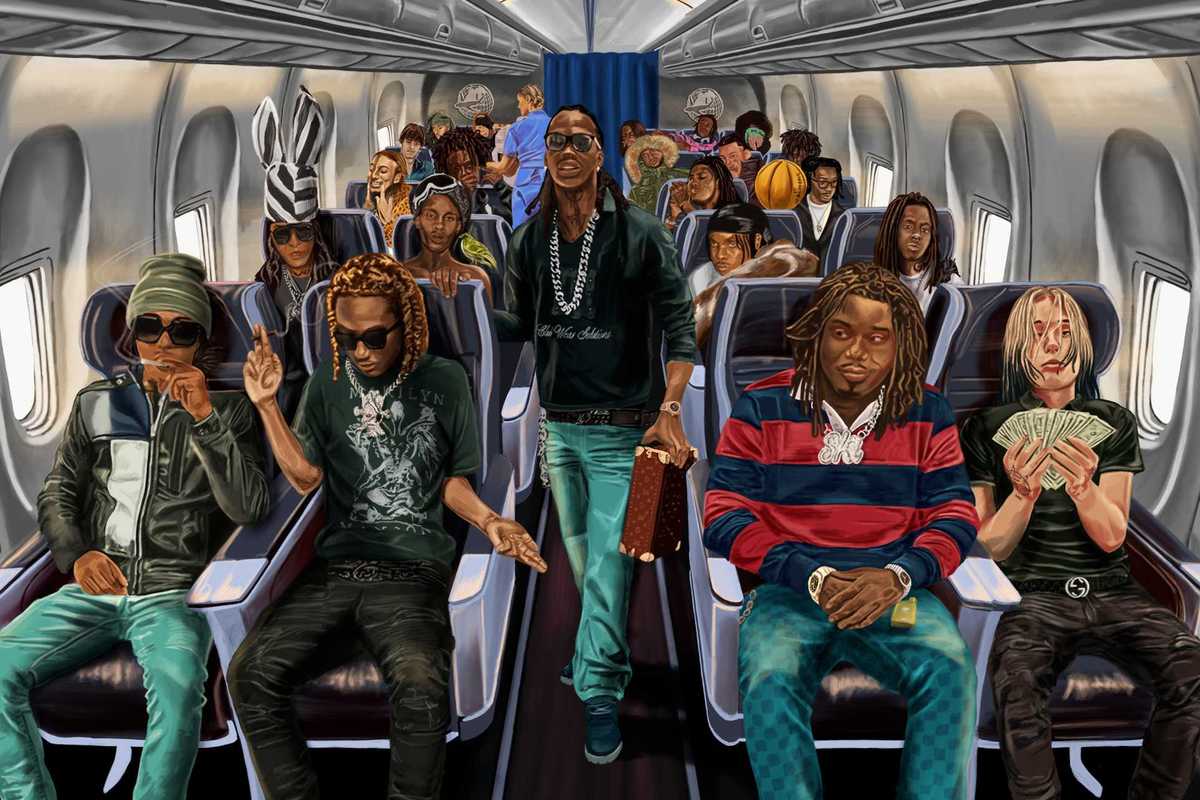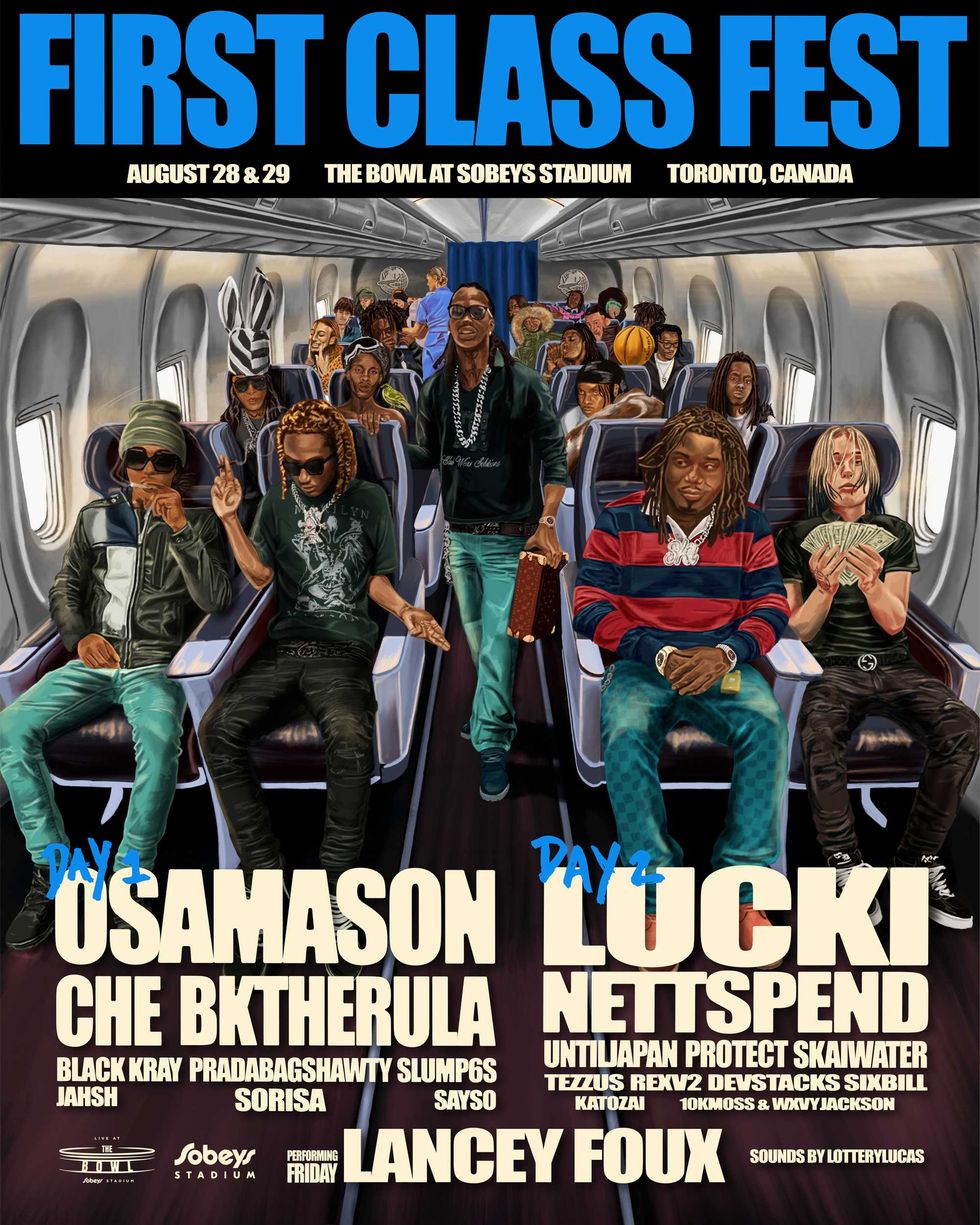Five Questions With… Aengus Finnan
As Executive Director of Folk Alliance International since 2014, the Canadian folk artist and administrator has brought significant change to the organization. In this interview, he discusses the event's return north in 2019 and his belief that folk music now is stronger than ever.

By Jason Schneider
As the folk festival season gets underway, it’s the time when organizers and bookers can (at least momentarily) enjoy the fruits of their labour throughout the rest of the year. That work goes on nonetheless, discovering new voices and helping to strengthen an infrastructure that provides them opportunities.
One of the most prominent figures leading that charge is Aengus Finnan, Executive Director of Folk Alliance International, the world’s largest annual folk music industry conference and artist showcase event. Since his appointment in 2014, FAI has been held in Kansas City, but that will change in 2019 when it will come to Montreal, marking a return to Canada after six years.
The move holds particular significance for Finnan who, although born in Ireland, grew up in rural southern Ontario near Peterborough and has been actively involved in folk music since the 1990s as an artist, event organizer, and administrator.
Upon being named FAI’s first non-US Executive Director, he set about launching new initiatives including an Artist in Residence program, an overseas micro-conference series called The ExChange, the introduction of Global Summits during the conference, a galvanized International Folk Music Awards show, and a thematic approach to programming.
Finnan took some time to chat with us about all of this, and what lies in store for next year’s FAI conference. For more information, go to folk.org.
How important is it for your organization to bring FAI back to Canada?
We were started by both the Canadian and US folk music communities, so, while our US membership and industry is much larger, it’s critical that we come back to Canada on a regular basis. Past Canadian editions have included Calgary in ‘92, Toronto in ’97 and ‘13, Vancouver in ‘01, and Montreal in ‘05. Coming to Canada is exciting because the conference composition changes significantly with more international guests in attendance, and far more Canadians are taking advantage of the career and craft development opportunities.
What are some of your priorities in the coming year leading up to the next conference?
We have three core priorities: The first encompasses diversity, inclusion, and internationalism, especially as it relates to indigenous representation within our industry. Now more than ever as a community we need to look past the comfort of how we do business and look at the broader social impact and responsibility we have as connectors and curators. It starts by looking around the room every single day, at every show, every meeting, and checking in on and calling out how homogeneous it is. It's not just about the optics or about how we look; it's a deeper need to recognize the richness of ideas and perspectives that are missing. Like any ecosystem, without diversity, it is doomed to erode itself.
The second is mental health and addiction in the music industry. We have to have a real, open, and meaningful conversation about alcohol for starters. In what other profession do most people do work with a drink in hand? It’s an issue we are all complicit in, and it's not doing us any favours, or necessarily creating better art, performances, or engagement. We also need to discuss mental health, depression, and the challenges associated with being a public figure, including managing privacy and one's ego. Nobody trains emotionally for ending up in a role where you are on stage every night commanding the hearts and minds of hundreds, and the expectations that come with that once you have more fans than friends. We also need to challenge the notion that artists must own and swim in their darkness to produce good art. Doing so may produce art, but at what long-term cost?
The third is Gender Equity. We signed on to the Keychange initiative—a global effort by festivals and events to reach 50/50 gender parity by 2020. By their standards, we met that goal in 2018 for our official showcases, but there is no reason for us not to reach that goal across all our programming including daytime panels, moderators, mentors, and emcees by 2019.
How would gauge the state of folk music in Canada right now?
It's beyond alive and well; it's in its healthiest state ever. The majority of professional artists creating, recording, and touring coast to coast fall into the independent acoustic roots realm—performing work, both traditional and contemporary, that speaks to this time, their observations, the story of the here and now, in modern and traditional styles. There are more artists than ever, more music than ever, and more festivals and concerts big and small. Despite the natural evolution and life cycle of some festival and venues that have wrapped up operations, there are more starting that may not even be aware of the shoulders on which they stand. Ultimately music is still the most accessible and interactive cultural experience, we crave the collective experience of it, and the more intimate the space and the delivery the more personal it becomes...in that way Folk is where it's at, again.
Who are some artists you are particularly interested in at the moment?
Our applications have just opened, and our jury process won't conclude until September, but some of the artists who excite, inspire and move me in general are Trad. Attack! from Estonia, Ramy Essam from Egypt, Forbidden Orchestra from Sweden, The Mammals from the US, Wallace Bird from Ireland, Lankum from Ireland, Making Movies from the US, Jorge Drexler from Uruguay, and William Prince from Canada.
If you could fix anything about the music business, what would it be?
I’d say the societal misconception that music is something that artists do and the public pays for. Time was that music is what everyone shared. Too many are too shy to sing a song 'round a campfire and in the company of friends, and instead, leave the singing to ‘the real musicians.’ We as musicians and music industry figures need not perpetuate that divide. I come from a tradition where everyone at least has one ‘party piece,’ the song or poem you are ready to deliver with gusto at the drop of a hat or the cajoling of friends and family, not for the glory of the stage, but for the collective joy of the moment. Somewhere in our North American experience, in our late teens and early twenties, we shy away from self-expression and consign art to a professional practice, and relegate non-artists to being ticket holders.


















